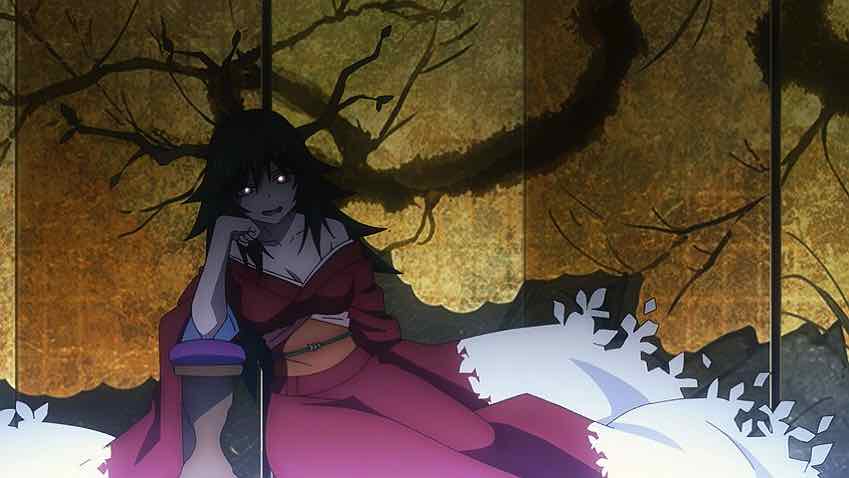Needless to say, I have many thoughts after that finale. Most obviously most in the “it was great” family. But more than that, it was gratifying above and beyond just being a great finale to a great series. First of all, that was how you do a finale. Nothing was rushed, nothing was frustratingly unresolved. I always preach about the need for a coda in multi-cour series especially, and this certainly excelled in that function. But it was more than simply coda – it was an elegant and comprehensive conclusion to every thematic thread of the story. And seriously, how often do you see that?
Mizukami Satoshi … There’s a reason why so many mangaka revere him (and in World Trigger’s case, name characters after him). He has a tremendous ability to tell a whole story. They can be complicated as hell and have a ton of characters (like Sengoku Youko). They can be relatively simple in construction (like Spirit Circle). But they always have a point. They always hold together. And no matter how many twists and turns he takes, as a reader and viewer you never feel lost. Everything makes sense, and so do everyone’s actions. No one does stuff just because they plot needs it – they do it because that’s what that person would do.
An interesting footnote to this final episode is that White Fox made two versions – a broadcast one and a sort of “director’s cut” for streaming. That was the one I watched (I will check out the TV one too, but I’m traveling and it may be a few days). This was about 26 minutes and I’m guessing most of the extra material came in the epilogue (including a surprising and delightful final line of dialogue). But there’s a lot of buildup to that – the last ep covered more time than the rest of the series combined. And the way time passes differently for humans and katawara (and Kami) was very much the central theme here.
There’s unfinished business aplenty here, so it’s not as if everyone is just going to settle down and live happily ever after. Tama and Jinka set off to return to their mountain (though Tama has an errand to take care of on the way). Tsukiko and Senya have a task as well – to escort Nau back to his home at long last. And you’d think Shinsuke would be happy to just spend time with Shakuyaku after everything they’ve been through. But he has business as well, and it’s the most dangerous of the lot.
I struggled a bit with Shinsuke’s decision to try and kill Yazen at first. Was this out of character for him? But no, it really isn’t. Shinsuke dedicated his life to protecting katawara (and generally those who couldn’t protect themselves). Yazen – with unfinished business of his own – represented a threat to them. Not for the first time Shinsuke proves that in Sengoku Youko, battles aren’t a simple spirit power contest. He doesn’t kill Yazen (though he intended to) but he does force the old man to use every last trick just to survive. But his experimenting days are over – which means that he and Kuzunoha are one more couple whose span of years is mismatched.
Shinsuke taking down Yazen is enough to convince Ooyama Mitsuchihime not to call in her debt with Tama (or so she says). Which is good, because this pairing stands out as one that’s not doomed to end in loneliness. Jinka is full katawara now, with the ears to prove it. They won’t have to part anytime soon – but that doesn’t apply to Nau and the youngsters. Nau reveals that he’s a piece of the mad God Senya took down at Tsukiko’s village all those years earlier. His marsh has dried up, but the little piece of Banshuou’s spirit power that he took with him is enough to restore it. Nau has a job to do and lots of lost time to make up for.
In an episode full of quiet emotional moments, this parting of best friends (accompanied by Evan Call’s beautiful score) was the most gut-wrenching for me. Nau was their constant companion and protector from the time Senya and Tsukiko were mere babes. It was simple and beautiful, a necessary and sad but nevertheless uplifting farewell. And with it, Senya promises Tsukiko that he will finally end his flight from himself and stay by her side. This is not Tama and Jinka – both of them know how it will end. But Senya has learned to treasure the time he has with the ones he loves. Tsukiko, nearing the end of her span of years, apologizing to Senya for “holding him up for so long” was hard to hear. But his response reveals just how thoroughly she – with the help of Shinsuke, Nau, and others – has healed his soul.
Senya, Tama, Jinka – they live on, along with Mudou and Tago and their fellow spiritual beings, even as Shinsuke and Tsukiko and even Shakuyaku move on. And the history of Japan moves on too. The Shogun’s killer is himself killed, by Nobunaga Oda. He in turn is killed by Mitsuhide Akechi, who’s killed by Hideyoshi, whose son is killed by Tokugawa Ieyasu after his death. The spell of concealment Senya and Shinsuke cast on the katawara village protects it from Japan’s endless wars, and Senya returns to wandering – this time truly alone. But there are visits to Setsu in the high peaks (maybe or maybe not only for tea and conversation). And Go with Mudou, who turns out to surprisingly good at it (thanks to a good teacher). And as he roams the countryside he helps those in need, and a legend of a benign white-haired God is born.
It’s quite satisfying to think of Senya, Mudou, and Jinka as a sort of strike force of justice, stamping out evil wherever it proves too much for humans. Senya may say he does it out of boredom, but he’s just the sort of guy who would do it anyway because it needed doing, and there was no one else who could. Alone and not alone, Senya carries the warmth of all those who healed him with him in the cold places of his life. And when he breaks the fourth wall to acknowledge the audience (taken straight from the manga) I’m once more glad that Mizukami is never content to just do things the conventional way. It’s a comprehensively satisfying end to a brilliant story, and one of the greatest character arcs in manga.
In the final analysis Sengoku Youko stands as a wholly successful adaptation. It doesn’t have the dazzling flair (or budget) of Tengoku Daimakyou or Nige Jouzu no Wakagimi. But it has love and respect for the source material, and that’s what really matters here. It’s some kind of miracle that this anime exists at all, never mind that it was given the time (because White Fox absolutely insisted) to do the job properly. It was one of the greatest injustices in anime that Mizukami’s masterpieces were never given a true adaptation for all these years. That injustice has finally been corrected, and even as we dream about what could be if Spirit Circle ever follows suit, this series’ existence is something we absolutely should celebrate with all our hearts.
The post Sengoku Youko: Senma Konton-hen – 22 (End) and Series Review appeared first on Lost in Anime.




